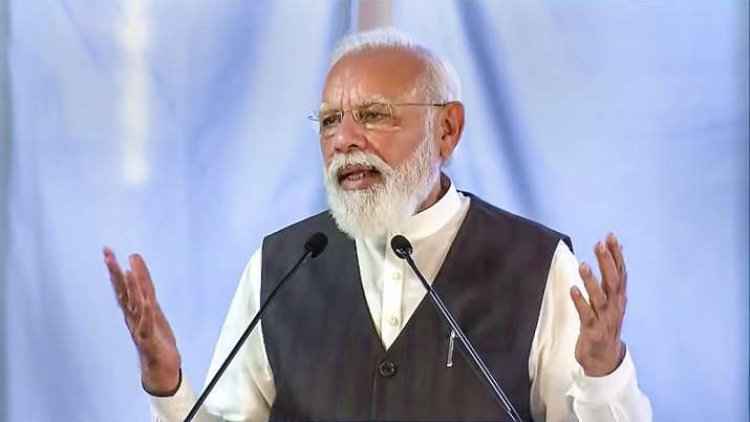PM Modi Launches Indian Space Association
STORIES, ANALYSES, EXPERT VIEWS

India's Prime Minister Narendra Modi Oct. 11 launched Indian Space Association (ISpA) via video conferencing.
Addressing the gathering, the Prime Minister remarked that the government's approach to space reforms is based on four pillars. First, the freedom of innovation to the private sector. Second, the role of the government as an enabler. Third, preparing youth for the future. And fourth, to see the space sector as a resource for the progress of the common man.
The Prime Minister said that the space sector is a major medium for the progress of 130 crore countrymen. He remarked that for India, the space sector means better mapping, imaging and connectivity facilities for the common people. Also, the space sector means better speed from shipment to delivery for entrepreneurs, this also means better security and income for fishermen and better forecast of the natural calamity, he added.
The Prime Minister said that, during the last 7 years, space technology has been converted into a tool of last-mile delivery and leakage-free, transparent governance. He gave examples of the use of geotagging in housing units for the poor, roads and infrastructure projects. Development projects are being monitored by satellite imaging.
The space technology is being used in settlement of ‘Fasal Bima Yojna’ (Crop insurance scheme) claims, NAVIC system is helping fishermen, disaster management planning is also being carried out through this technology, the Prime Minister informed. The Prime Minister emphasized the importance of making technology accessible to everyone. Giving an example of digital technology, he said that India is among the top digital economies today because we could make the power of data accessible to the poorest of the poor.
The Prime Minister expressed the hope that through the active engagement of the stakeholders very soon a better Spacecom policy and Remote Sensing Policy will emerge.
The Prime Minister noted how the 20th-century tendency of trying to rule the space and the space sector, divided the countries of the world. Now in the 21st century, India will have to ensure that space plays an important role in uniting and connecting the world, he concluded.
Importance of ISpA
The Indian Space Association (ISpA) will represent various stakeholders in the Indian space domain with members comprising the Indian Space Research Organisation (ISRO), Bharti Airtel, OneWeb, Tata Group’s Nelco, L&T, MapMyIndia among others.
Significance: Pranav Mukul , Aashish Aryan, writing in the Indian Express state “while India has made progress in the space sector over the years, ISRO has primarily been at the centre of this progress. Along the lines of the US now several private sector companies both global and domestic have taken interest in India’s space domain, with space-based communication networks coming to the fore.”
Importance of space-based communications network: Satellite communications is the next frontier to provide internet connectivity at the retail level. This includes SpaceX’s StarLink, Sunil Bharti Mittal’s OneWeb, Amazon’s Project Kuiper, US satellite maker Hughes Communications, etc. OneWeb, for example, write the two authors “is building its initial constellation of 648 low-earth orbit satellites and has already put 322 satellites into orbit. Its services are expected to begin this year to the Arctic region including Alaska, Canada, and the UK. By late 2022, OneWeb will offer its high-speed, low latency connectivity services in India and the rest of the world. In addition, StarLink and Amazon are also in discussions with the Indian government for a licence to offer satellite-based internet services. SpaceX has a plan to create a network of 12,000 satellites of which over 1,300 are already sky-borne.”
Importance of satellite internet: Satellite internet will be “essential for broadband inclusion in remote areas and sparsely populated locations where terrestrial networks have not reached. As of now, however, satellite communications remains limited to use by corporates and institutions that use it for emergency use, critical trans-continental communications and for connecting to remote areas with no connectivity. As of August this year, India had only 3 lakh satellite communications customers, compared with 45 lakh in the US and 21 lakh in the European Union.”
















